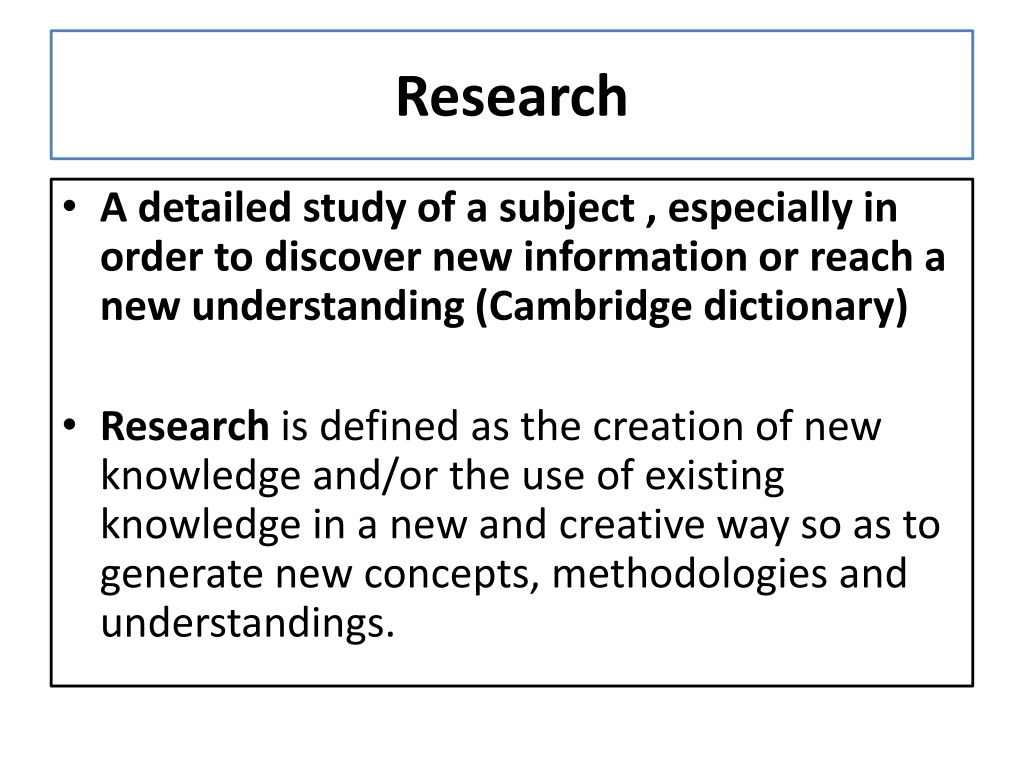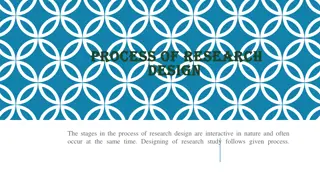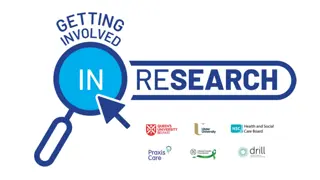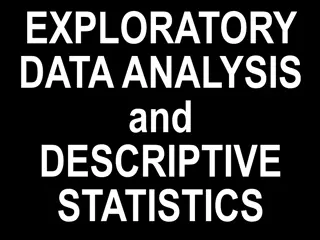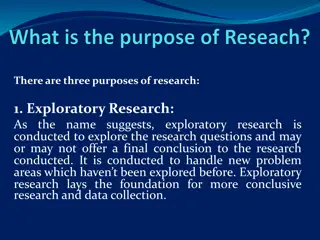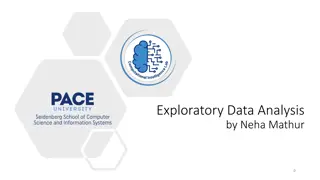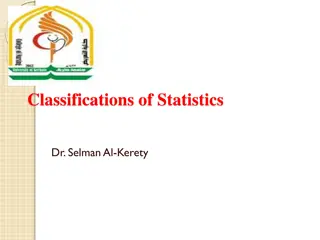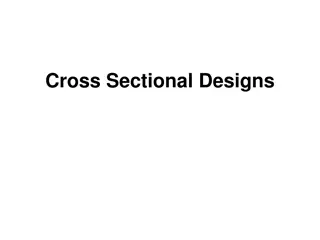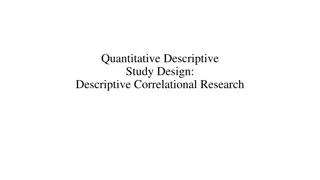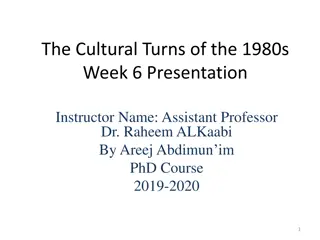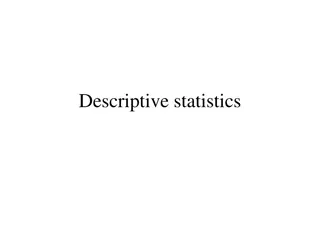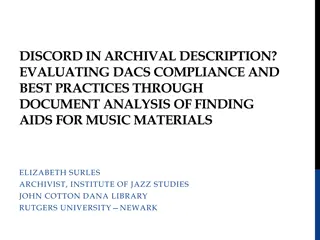Understanding the Purpose of Research: Exploratory, Descriptive, and Explanatory Studies
Research is a systematic inquiry process that involves data collection, critical information documentation, analysis, and interpretation. It serves three main purposes: exploratory research to explore questions, descriptive research to expand knowledge on current issues, and explanatory research to understand the impact of changes in procedures through experiments. Different methods such as surveys, focus groups, and data collection are used to achieve these purposes.
Download Presentation

Please find below an Image/Link to download the presentation.
The content on the website is provided AS IS for your information and personal use only. It may not be sold, licensed, or shared on other websites without obtaining consent from the author. Download presentation by click this link. If you encounter any issues during the download, it is possible that the publisher has removed the file from their server.
E N D
Presentation Transcript
Research A detailed study of a subject , especially in order to discover new information or reach a new understanding (Cambridge dictionary) Research is defined as the creation of new knowledge and/or the use of existing knowledge in a new and creative way so as to generate new concepts, methodologies and understandings.
Research is a process of systematic inquiry that entails collection of data; documentation of critical information; and analysis and interpretation of that data/information, in accordance with suitable methodologies set by specific professional fields and academic disciplines.
What is the purpose of research? There are three main purposes: Exploratory: As the name suggests, researchers conduct exploratory studies to explore a group of questions. The answers and analytics may not offer a conclusion to the perceived problem. Exploratory research is defined as a research used to investigate a problem which is not clearly defined. It is conducted to have a better understanding of the existing problem
Surveys/polls: For example: A survey is sent to a given set of audience to understand their opinions about the size of mobile phones when they purchase one. Focus groups: Focus group is yet another widely used method in exploratory research. In such a method a group of people is chosen and are allowed to express their insights on the topic that is being studied. Although, it is important to make sure that while choosing the individuals in a focus group they should have a common background and have comparable experiences.
Descriptive It focuses on expanding knowledge on current issues through a process of data collection. Descriptive studies describe the behavior of a sample population. The three primary purposes of descriptive studies are describing, explaining, and validating the findings.
Explanatory Causal or explanatory research is conducted to understand the impact of specific changes in existing standard procedures. Running experiments is the most popular form.
Educational research can take a wide variety of forms and serve many different purposes. Sometimes it is located within social science disciplines, especially psychology and sociology. Other work is of a more policy-oriented nature, and some is quite closely linked to educational practice. There is also diversity at the level of methods used. These include: laboratory and classroom experiments; Large-scale surveys of the behaviour, attitudes, aptitudes, etc., of teachers, children, heads, and others; and Small-scale investigations of particular institutions or locale.
A common way of conceptualizing this diversity in method and data is the distinction between quantitative and qualitative approaches, between research which relies primarily on numerical data and that which uses mainly verbal data.
DEVELOPMENT OF EDUCATIONAL RESEARCH Educational research began in the late nineteenth and early twentieth centuries. Before that much had been written about education, but this had been primarily concerned with how children should be educated.
This initial connection was with psychology. Then it led to a commitment on the part of educational researchers not just to a scientific approach to their work but also to a particular interpretation of the methodological requirements of science. This placed great emphasis on the need for quantitative measurement of the characteristics of learners and teachers, and of their behaviour. Experimental method was regarded as the ideal model of a scientific approach, even though by no means all early educational research was experimental in character.
A particularly important aspect of this early history of educational research was the construction of mental tests of various kinds - of intelligence, academic achievement, personality, and attitude which were applied to pupils. Alongside these were developed various rating scales and observational schedules for measuring aspects of teachers' behaviour.
Such tests and behavioural measurements were believed to offer teachers, educational administrators and others valuable information of an objective kind which would facilitate both effective educational planning and the monitoring of educational processes to assess their success.
Some Tips for conducting good research Identify the main trends and issues, opportunities, and problems you observe Evaluate a list of the strengths, weaknesses, opportunities, and threats that have been identified in a SWOT analysis. Look for gaps in the information, and consider doing inquiry if necessary Review ample studies their results and consider efficient methods to analyze and intrepret the results
Key Differences Between Exploratory and Descriptive Research The difference between exploratory and descriptive research can be drawn clearly on the following grounds: Research conducted for formulating a problem for more clear investigation is called exploratory research. Research that explore and explains an individual, group or a situation, is called descriptive research. The exploratory research aims at the discovery of ideas and thoughts whereas the primary purpose of descriptive research is to describe the characteristics and functions. The overall design of the exploratory research should be flexible enough so that it provides an opportunity to consider various aspects of the problem. On the contrary, in descriptive research, the overall design should be rigid which protects against bias and also maximise reliability. The research process is unstructured in exploratory research. However, it is structured in the case of descriptive research. Non-probability sampling i.e. judgment or purposive sampling design is used in exploratory research. As opposed to descriptive research where probability (random) sampling design is used. When it comes to statistical design, exploratory research has no pre-planned design for analysis. Unlike, descriptive research that has the pre-planned design for analysis.
